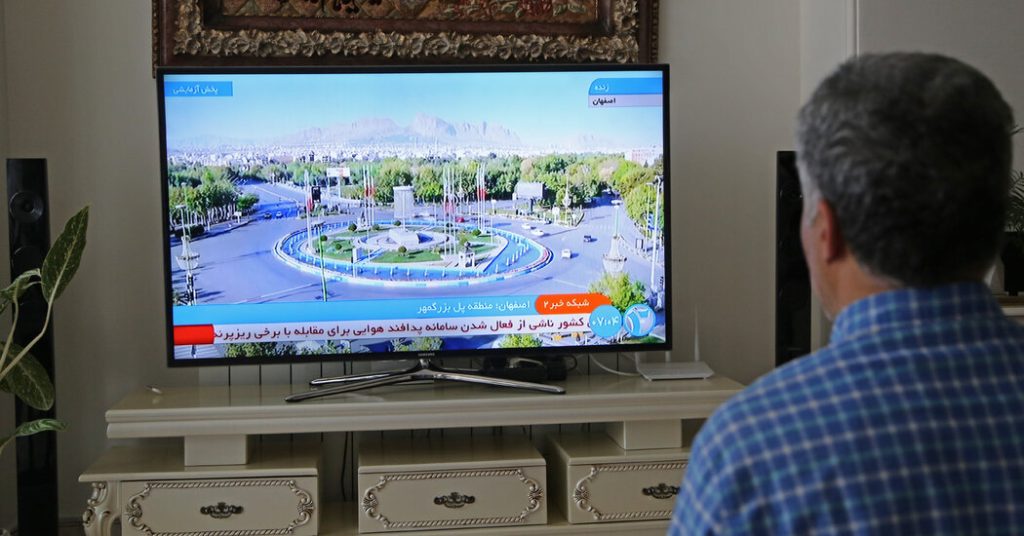The Israeli strike on a military base near the Iranian city of Isfahan was confirmed by both Israeli and Iranian officials, but was largely downplayed by both countries. Israeli officials described the strike as a limited response aimed at avoiding an escalation of tensions. Pundits on Israeli news shows suggested that the strike did not result in significant damage to military sites in Iran. Dana Weiss, a diplomatic affairs analyst, noted that Israel has the capability to execute military maneuvers that are subtle yet contain a clear message.
State television in Iran assured viewers that military and nuclear facilities in Isfahan were safe, showing calm footage of the city. Iranian newsreaders dismissed the attack as insignificant, and social media users in Iran mocked the Israeli strike, comparing it to a paper airplane hitting a building. Brig. General Siavash Mihandoust insisted that any explosions heard in Isfahan were not due to Israeli strikes, attributing them to air defense systems neutralizing “flying objects.”
Some in Israel, particularly from right-wing parties, celebrated the strikes. Lawmaker Tally Gotliv from the Likud party expressed pride in Israel’s strength and forcefulness in the wake of the attack. Despite the positive responses from some Israeli leaders, the strike did not significantly impact the narrative in either country. The contrasting reactions, with Israel downplaying the significance of their strike and Iran dismissing it as inconsequential, highlight the complex dynamics at play in the ongoing conflict between the two nations.
The muted response from world leaders following the Israeli strike on the Isfahan military base raised concerns about a potential escalation of violence in the region. The cycle of retaliation between Israel and Iran has drawn international attention, with fears of a broader conflict emerging. Despite the relatively subdued reactions from both countries involved in the conflict, the situation remains volatile and unpredictable. The need for de-escalation and diplomatic solutions to address the underlying issues fuelling the conflict is evident.
The Israeli strike, described as an “elegant military maneuver” by analysts, underscores Israel’s strategic approach to sending a message without causing significant damage. The implications of such precision strikes, aimed at delivering a clear message without escalating tensions, have far-reaching consequences. The ability to execute targeted military operations while avoiding widespread destruction demonstrates a sophisticated military strategy on Israel’s part. However, the potential for unintended consequences and further escalation remains a major concern for world leaders and regional stability.
The mocking response by social media users in Iran to the Israeli strike highlights the propaganda war being waged alongside the military conflict. The use of humor and sarcasm to downplay the impact of the strike reflects a larger strategy of psychological warfare employed by both sides. The propaganda efforts, which aim to influence public perception and morale, play a significant role in shaping the narrative around the conflict. As tensions continue to simmer between Israel and Iran, the propaganda war is likely to intensify, further complicating efforts to reach a peaceful resolution.














